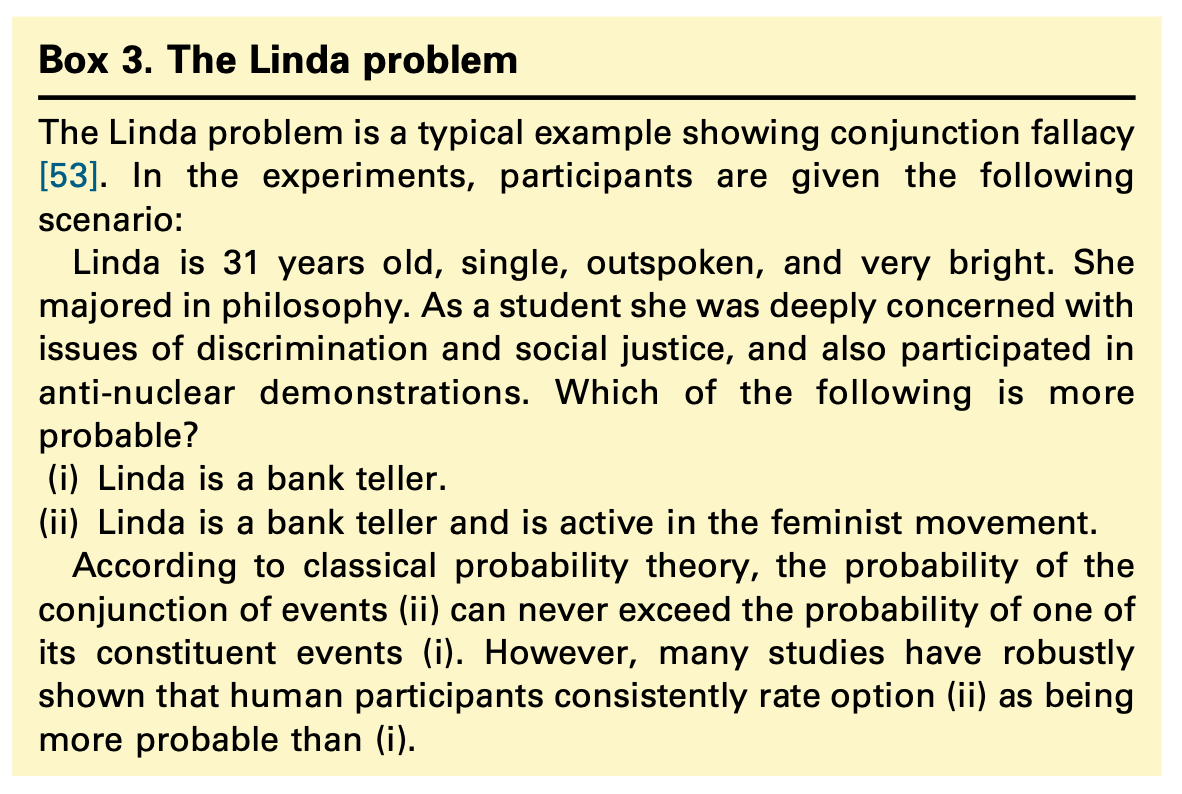From Quantum Physics to Quantum Cognition ¶
They (quantum cognition) did not proceed from the assumption that there is something quantum-like taking place in the brain, but instead drew inspiration from both the mathematical structure of quantum theory and its associated dynamic principles.
Compatibility

3 Superposition

- Disjunctions and Conditionals in Human Language
- A or B: AB, A~B, ~AB
- if A then B: AB, ~AB, ~A~B
Classical and Quantum Probability Theories ¶
- Classical Probability Theory (Kolmogorov, 1933)

- Quantum Probability Theory (von Neumann, 1932)

Empirical Support for Quantum Cognition ¶
- Probability judgment errors



Order effects on attitudes, inference, and causal reasoning
Violations of rational decision making


Enhanced Rationality in ASD (Rozenkrantz et al., 2021) ¶

References ¶
Bruza, P. D., Wang, Z., & Busemeyer, J. R. (2015). Quantum cognition: A new theoretical approach to psychology. Trends in Cognitive Sciences, 19(7), 383-393. https://doi.org/10.1016/j.tics.2015.05.001
Kolmogorov, A. N. (1933/1950). Foundations of the Theory of Probability, Chelsea Publishing
von Neumann, J. (1932/1955). Mathematical Foundations of Quantum Theory, Princeton University Press